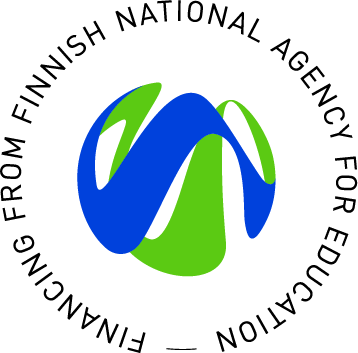Come and learn the basics of programming or update your skills!
The highly popular (2016 and 2017) Interested in coding and robotics? tour will return to the Innokas network’s agenda after its renewal. Come and learn the basics of programming and programming-based thinking or update your skills – the training is suitable for beginners, as well as for more experienced teachers familiar with programming and programming-based thinking. The training responds directly to the needs of current basic education programming from the perspective of both classroom and subject teachers. By participating in the training, you will receive both the latest information on the pedagogical methods for programming and practical tips for teaching.
The program consists of independent viewing of short and inspiring videos, remote parts and a local tour day in ten locations. You can participate in either the first part only or in all three training sections.
Target group
The training is intended for both classroom and subject teachers.
Content and structure
The training consists of three parts. The first part, to be implemented remotely, introduces programming and programming-based thinking to pedagogical subject areas, using both practical tips and the latest research knowledge. The second part, to be performed as local training, will be in the form of a tour; workshop days with the same content will be held in ten locations around Finland. During the local day, you will participate in two functional workshops. Workshop selections are made at the time of registration. The third part, to be implemented remotely, will consist of remote lessons at different levels. Teachers who participated in training will share with pupils their experience from teaching experiments in programming and programming-based thinking in schools, and contribute to solving the community and game programming challenge.
Part 1: Introduction to the pedagogical questions of programming and programming-based thinking (remote)
Time: Wednesday, January 25 from 12 pm to 4 pm
Part 2: Hands-on tour days, 8.30 am to 3.30 pm
Locations and dates:
-
-
- Thursday, February 2, Helsinki
- Thursday, February 9. Turku
- Friday, February 10, Oulu
- Tuesday, February 14, Lappeenranta
- Wednesday, February 15, Kuopio
- Thursday, February 16, Lohja
- Thursday, February 16, Larsmo (in Swedish)
- Monday, February 20, Kontiolahti
- Wednesday, February 22 Tampere
- Wednesday, February 22, Rovaniemi
-
Workshops; select two when registering:
-
-
- Boldly into robotics
By building and programming robotics, it’s possible to learn programming and increase one’s understanding of the surrounding society. In addition to programming and building, robotics is an excellent tool for studying various phenomena. The workshop will focus on ways to integrate robotics into the content of different subjects and get to know the research knowledge behind the teaching of robotics and proven teaching methods. - Into the world of maker activity using creativity
The goal of maker activity is to teach the production and editing of digital content instead of consuming it. During the workshop, attention will be paid to the development of the teacher’s skills; what methods can be used to teach and develop programming and programming-based thinking skills that evolve effectively in maker activities; and how maker activities can be combined with teaching different subjects. - Dive into game creation
Through game creation and programming, we learn to utilize different skills in other digital areas. At the same time, we discover the many possibilities of using our own games to study different learning phenomena. The workshop will explore ways to create simple digital games and take advantage of their elements as part of everyday teaching work. - Teach your own AI
Various features of AI are constantly used as part of everyone’s daily life. Sometimes we don’t even recognize or take into account the effects of AI. Programming, or rather teaching, artificial intelligence is easy at first, but it’s sometimes difficult to achieve reliable results. In the workshop, participants will observe various manifestations of artificial intelligence, try teaching artificial intelligence and learn about practical tools that can be used for AI as part of teaching work.
- Boldly into robotics
-
Part 3: Remote lessons, teacher attending remote lessons with pupils
Dates:
-
-
- Classes 1 to 3: March 16 from 9 am to 10.30 am
- Classes 4 to 6: March 21 from 9 am to 10.30 am
- Classes 7 to 9: March 23 from 9 am to 10.30 am
-
Registration
The registration for the training is closed.

